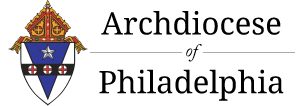“[If] fewer people live out the norms of marriage, then fewer people will reap the benefits of the institution of marriage – not only spouses, but also children. Preserving the man-woman definition of marriage is the only way to preserve the benefits of marriage and avoid the enormous societal risks accompanying a genderless marriage regime. How can the law teach that fathers are essential, for example, when it has officially made them optional?”
– Ryan Anderson, “Truth Overruled”
Two memories from this fall will stay with me for a long time.
The first, obviously, is the success of September’s World Meeting of Families. The many hundreds of thousands of people who welcomed the Holy Father to Philadelphia gave an enthusiastic witness to the importance of family life. The weekend presence of Pope Francis brought people to an emotional peak that – we hope – will help transform our region for the better.
Meanwhile, the congress that preceded the papal visit doubled the attendance of any previous, similar WMOF event. The congress had a purpose related to but different from the Holy Father’s presence. People from around the world who attended it did so specifically to learn. The congress fed people’s minds and hearts with the wisdom of the Church in a vast range of sessions dealing with practical family and marriage issues. Its success showed how hungry people are for the tools to live, explain and defend their Christian marriages and families more fruitfully.
My second memory is the October synod of bishops, where I served as a delegate. The Holy Father encouraged a high degree of candor among the attending bishops. In doing so, he ensured that a weak Instrumentum Laboris – the synod’s working document – was made much better. The synod’s working groups greatly improved on the original text, especially in its use of Scripture, its sensitivity to the beauty and needs of children, and its support for healthy Christian families. Pope Francis’ post-synodal apostolic exhortation, due in the coming weeks, will likely reflect this good work.
Here at home, as we get ready for Christ the King Sunday (Nov. 22) and the end of the Church year, it’s a good time to ponder these two events — the World Meeting of Families and the synod of bishops – and take strength from what they achieved. We’ll need that strength for the work ahead. For all of its joy, 2015 has also seen some of the worst judicial and political attacks on marriage, the family and religious freedom in our history. The Supreme Court’s Obergefell v. Hodges ruling, which imposed same-sex “marriage” on the nation, is a masterpiece of dishonest reasoning with bitter effects.
Pope Francis has forcefully preached marriage as the permanent covenant of one man and one woman for the purpose of mutual love and the bearing of children. Permanence, exclusivity, sexual complementarity and children are central to the meaning of marriage. For Francis, this is a truth written into the nature of human beings. No law or court can change that, because man doesn’t invent truth. It pre-exists humanity. We discover it through a spirit of humility. Thus, Francis’ defense of marriage is neither nostalgic nor reflexive. It’s rooted in a passion for truth – the truth about who we are as creatures and the purpose God intends for us.
One of the key influences on the mind of the current Holy Father was the theologian Romano Guardini. In The Faith and Modern Man, Guardini wrote:
“A man’s mind falls ill when he relinquishes his hold on truth – not by lying, though he lie often, for in that case the injury to the spirit can be repaired by contrition and the renewal of good will – but by an inward revolt from truth. True illness of the mind and spirit sets in when a man no longer cherishes truth but despises it, when he uses it as a means to his own ends, when in the depths of his soul truth ceases to be to him the primary, the most important concern.”
And that brings me to the final point of my column this week. Truth matters. It’s worth living and fighting for. And on the issue of marriage, no one speaks the truth with more energy, courtesy, intelligence and skill than the author and scholar Ryan Anderson.
In 2012, Anderson co-authored (with Sherif Girgis) What is Marriage? Man and Woman: A Defense (Encounter Books). His latest book – Truth Overruled: The Future of Marriage and Religious Freedom (Regnery) – outlines the problems for religious liberty posed by any redefinition of marriage. It also goes well beyond that. Daily life in any culture is a finely balanced ecology. A slogan like “marriage equality” may sound simple and innocent. Its supporters may be heartfelt and sincere. But well-intentioned or not, it has serious, damaging consequences for law, personal freedom and social health; and too often, it also lacks any connection with a spirit of truth. Anderson’s discussion of the real victims of redefining marriage and the family – starting with the impact on children – is especially sobering. His book is well worth reading and sharing with friends.
Jesus said that we will know the truth, and the truth will make us free (Jn 8:32). On the matter of marriage and the family, how well we live and work for the truth in the years ahead will shape the nation our children will inherit. Anderson’s book invites us to that task.
Ryan Anderson’s “Truth Overruled: The Future of Marriage and Religious Freedom” is published by Regnery and available on Amazon.com.
# # #
Editor’s Note: Columns will be published each week on www.CatholicPhilly.com and can also be found at https://archphila.org/archbishop-chaput/statements/statements.php.






